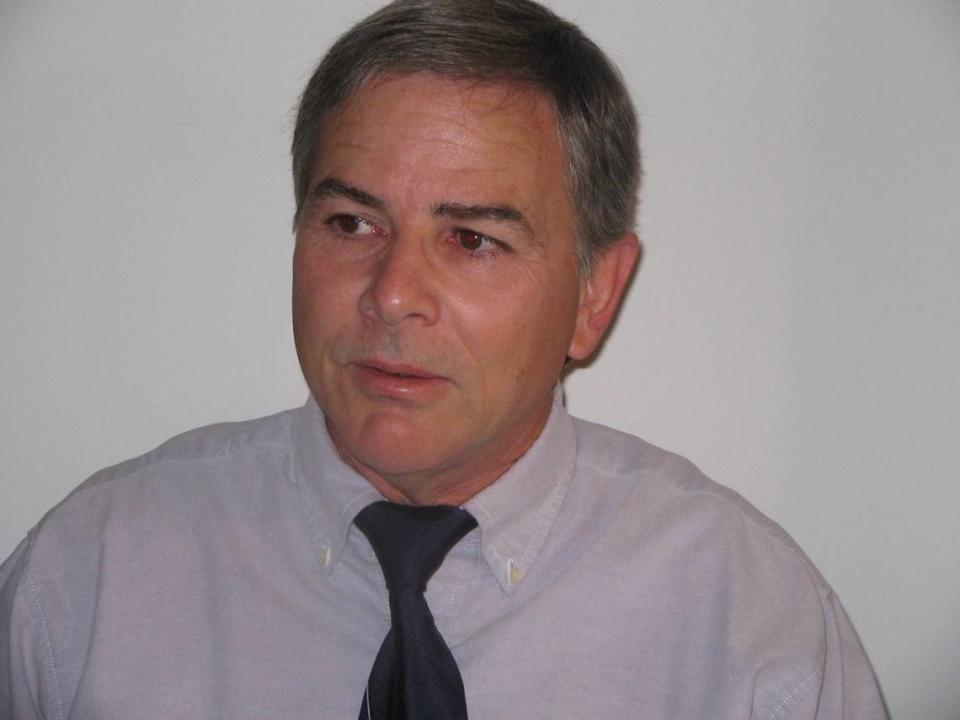Even 245 years after independence, we’re still trying to define American patriotism
- Oops!Something went wrong.Please try again later.
“Over there are some Civil War veterans. Iron flags on their graves … New Hampshire boys … had a notion that the Union ought to be kept together, though they’d never seen more than fifty miles of it themselves. All they knew was the name, friends – the United States of America … and they went and died about it.” Our Town (1938)
The soldiers, the graves and the town – Grover’s Corners, New Hampshire – sprang from the imagination of Thornton Wilder. But the playwright stayed close to history. The isolation he described was normal in the Civil War era anywhere beyond the cities and the railroads.
A New Hampshire boy in the 1860s was unlikely to have ever seen a cotton plantation or an enslaved worker. He was also unlikely to ever encounter a Confederate soldier, unless he went looking. A contingent of 35,000, representing 11% of the state’s entire population, went looking. They weren’t outliers; by 1865 roughly one of every ten Americans had served in the Union or Confederate army.
It would be gratifying to report that Union soldiers enlisted to rid the nation of slavery. Relatively few did. Historians cite motives ranging from duty and honor to adventure and steady pay. A desire to keep the young country intact may have been the biggest factor of all, as Thornton Wilder suggested in his script.
Who risks everything to maintain political ties with people and places they’ve never seen? Short answer: patriots. Yet patriotism defies short explanations, and Americans have debated its meaning since the founding. Men on both sides of the Civil War invoked the founding fathers, fought in freedom’s name and saw themselves as patriots.
As we mark 245 years of independence, few of us give much thought to patriotism. That’s not all bad, considering the kinds of days that push the topic to the foreground: December 7, 1941, September 11, 2001, January 6, 2021. When we don’t feel threatened, we leave talk of patriotism to politicians (sigh) or to pundits, who still debate its substance, sources and usefulness.
American patriotism is different, say many of them. Unlike citizens of older countries, we don’t tread the same ground as our ancestors did a thousand years ago. Our roots come from a set of peculiar ideas about self-government that some British colonists put to paper in 1776 after growing annoyed with the home office.
America is an idea, as President Biden likes to say. Scholars such as Wilfred M. McClay think the metaphor can be stretched too far: “There is certainly some truth to this view, but to focus on it exclusively ignores the very natural and concrete aspects of American patriotism: our shared memories of our nation’s singular triumphs, sacrifices, and sufferings, as well as our unique traditions, culture, and land.”
Even a nation born of ideas needs some measure of the “blood and soil” bonds that first gave rise to nation-states. An intellectual foundation, goes the thinking, can’t endure without emotional reinforcement.
The final word on patriotism won’t be written any time soon. Neither will the secret to a patriotic resurgence, though our country could use one. Where it might start is hard to imagine, but where it won’t start is clear: the far ends of the political spectrum.
The left deplores America’s economic and political systems as well as its history and culture. Flag waving would seem odd in a crowd that can’t find a kind word for anything the flag represents. The hardliners are cheerfully candid: they’ll love their country when it reflects their ideology, and not a moment sooner.
The far right, meanwhile, wraps itself in the flag and spouts patriotic babble. “Real Americans” who accuse their opponents of stealing elections while trying their best to steal an election? “Real Americans” who yearn for a modern-day Caesar?
Sorry, but if the cornerstones of democracy look like obstacles to you, you haven’t gotten the idea of America at all.
Michael Smith is a freelance opinion writer in Georgetown.


